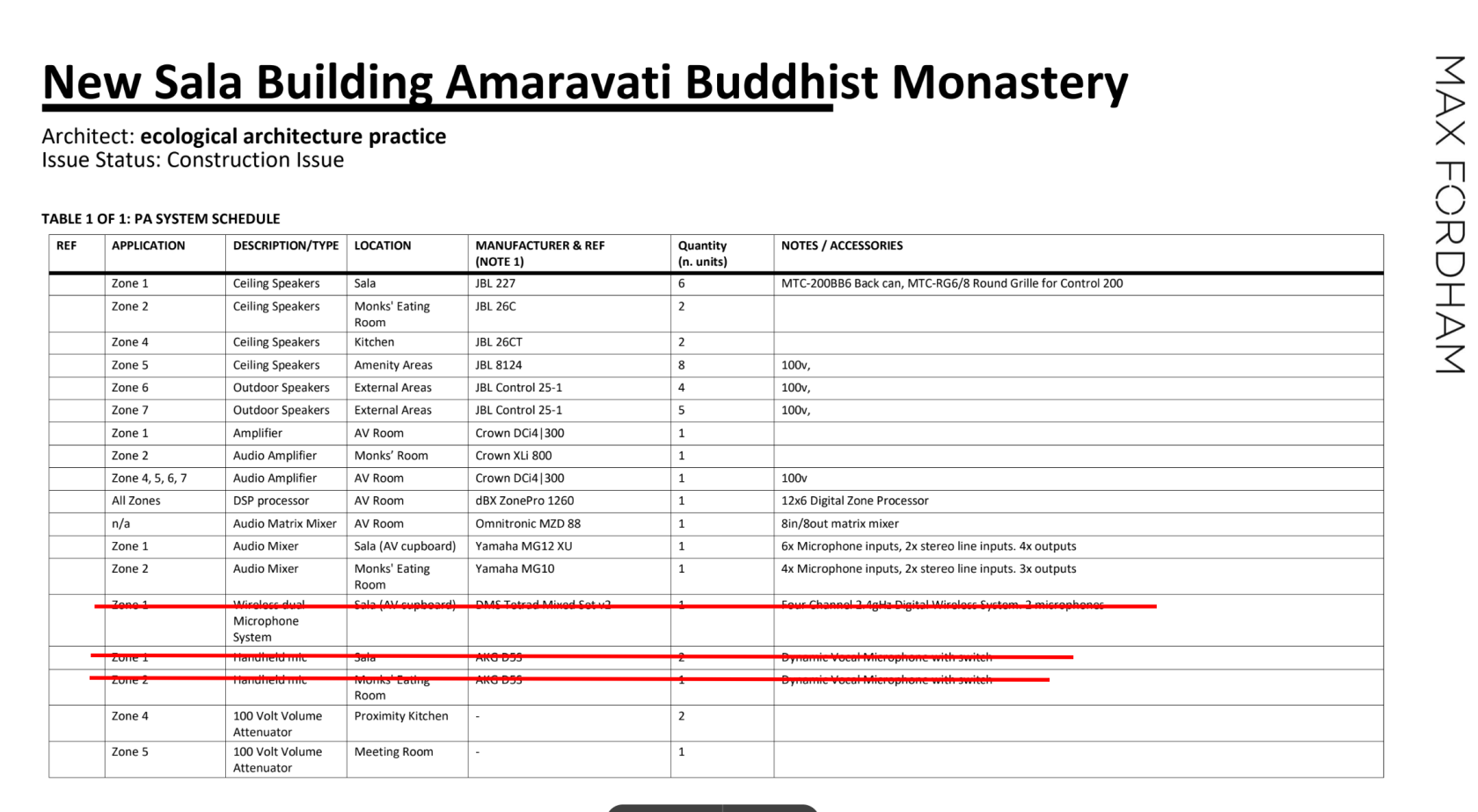Mics
Updated Audio Equipment List
The audio team would like to replace the three items below:
with:
| APPLICATION | DESCRIPTION/TYPE | LOCATION |
MANUFACTURER & REF (NOTE 1) |
Quantity | NOTES / ACCESSORIES |
| Zone 1 | Wireless SM58 Microphone System |
Sala (AV Cabinet*) | Shure GLXD24+/SM58 |
2 | 2x Dual band 2.4GHz and 5.8GHz Digital Wireless System with microphone |
| Zone 1 | Rechargeable Li-Ion batteries | Sala (AV Cabinet) | Shure SB904 | 2 | For Shure GLXD24+/SM58 System |
| Zone 1 | Wired SM58 microphones with switch | Sala (AV Cabinet) | Shure SM58S | 2 |
We have old mics we can use as well in addition to this in zone 2. |
*Note: The AV Cabinet seems more suitable for a locating the mic wireless system (due to a Wi-Fi access point in the AV Room creating interferences)
Comment from Neil, Acoustic Engineer
Both analogue and digital mics can suffer interference. But slightly different characteristics. I think the digital systems have perhaps more risk on cutting out altogether within a full venue (lots of mobile phones etc). But I get the impression that the quality of the product is likely more important. For example I believe the Shure QLX-D wireless systems are a bit of current industry standard for quality hardware.
Inevitably, analogue mics are going to be simpler to operate and probably less likely to cut out altogether - although can also be prone to stray analogue interference.
It could be that a decent old school Shure analogue system is suitable, and provides more comfort and less risk, such as
BLX288/B58 - Wireless Dual Vocal System with two Beta 58A - Shure United Kingdom
Reply from Tan Karunno
While it is true that both analogue and digital microphones suffer from interferences, they have different intermittence characteristics. The noise-floor threshold in a digital system cuts out if there is no data coming through, getting indistinguishable from the background noise-floor, while it creeps in on an analogue transmitter/receiver system. In the Shure GLXD24+ Wireless System, Shure has tried to specifically address this issue of using the 2.4GHz and 5.8GHz frequency bands, by incorporating a dual band system in the GLXD24+, that runs on both - switching to the other band if needed.
Also, the Shure QLX-D Wireless System requires a licence in order to use it, the Shure GLXD24+/SM58 System does not require one.


No Comments